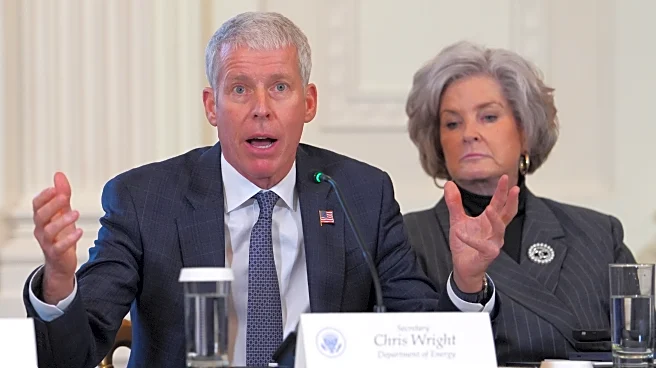What is the story about?
What's Happening?
The longstanding de minimis exemption, which allowed small-value packages to enter the U.S. tariff-free, has ended, affecting small businesses and postal services globally. This change could result in up to $13 billion in extra costs and delayed shipping for consumers. The exemption primarily benefited direct-to-consumer models, including Chinese e-commerce brands like Shein and Temu. The White House cited national security concerns and the need to protect American manufacturers as reasons for ending the exemption.
Why It's Important?
The end of the de minimis exemption is expected to increase prices for consumers, particularly those purchasing from low-cost retailers. It poses challenges for small businesses that rely on direct shipments to U.S. customers, potentially leading to higher costs and reduced variety. The policy change reflects broader scrutiny of tariff exemptions and their impact on U.S. trade and security.
What's Next?
Businesses affected by the exemption's removal will need to adjust their pricing strategies and supply chains. The change may lead to a shift in consumer behavior, with shoppers seeking alternatives to avoid higher costs. The administration's decision could face pushback from international trading partners and domestic stakeholders advocating for a return to the exemption.
















